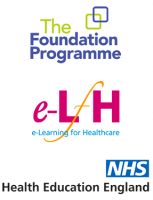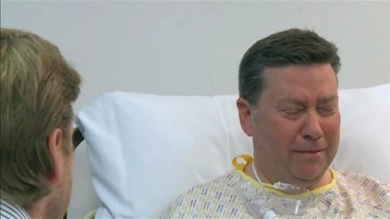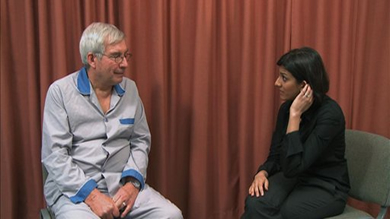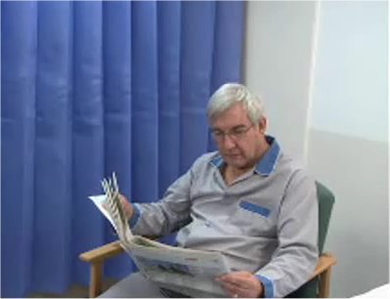Breaking Bad News course for Dental Practice



This session explores basic principles in breaking bad news and examines how these can be employed given the reality and constraints of the working life of a foundation doctor.
Curriculum
Section: 2 Communication, Team-working and Leadership
- Professional Capability: 6 Communication, team-working and leadership
Learning Objectives
By the end of this session you will be able to:
- Identify the reasons why breaking bad news is so difficult for doctors
- List the basic principles of good practice
- Describe a framework within which to structure the telling of bad news
- List the skills that enable bad news to be imparted sensitively
- Describe how to maximise your effectiveness and look after yourself
As doctors, almost all of us will break bad news regularly as part of our everyday working life, yet most of us never become comfortable in this stressful situation.
Before commencing this session you should:
- Be familiar with and have basic competence in the core communication skills of the medical interview as taught in undergraduate medicine, especially relationship building and explanation and planning
Jonathan Silverman has recently retired as Associate Clinical Dean at the School of Clinical Medicine, University of Cambridge and was a general practitioner for over 30 years. He has been actively involved in teaching communication skills since 1988 and in 1993, undertook a sabbatical with Professor Suzanne Kurtz, teaching and researching communication skills at the Faculty of Medicine, University of Calgary.
In 1999 he became Director of Communication Studies for the undergraduate curriculum in Cambridge, which now involves over 700 half day small group sessions per year. He is best known as one of the authors of the Calgary-Cambridge Guides to the Medical Interview, which provide a framework for describing the medical interview and incorporate a comprehensive set of skills referenced to the current evidence.
He has conducted communication skills teaching seminars throughout the UK, in Europe and N. America. In 2005, he founded the UK Council for Communication Skills Teaching in Undergraduate Medical Education for all 33 UK medical school, is past chair of the teaching committee and now President-elect of the European Association of Communication in Healthcare.


- Acute Medicine | Palliative care | Management of s...
- Posted By eIntegrity Healthcare e-Learning
- Posted Date: 2025-01-04
- Location:Online
- Oral problems can impact greatly on the quality of life of patients receiving end of life care. This session provides a framework for the assessment and management of a sore mouth and other oral problems. This session was reviewed by Jason Ward and Richar
- Medical and Pharmacology | Human diseases and medi...
- Posted By eIntegrity Healthcare e-Learning
- Posted Date: 2025-01-04
- Location:Online
- This session outlines the difference between the innate and adaptive immune systems, the design, components and cellular function of the immune system and the consequences of breakdown of normal immune function.
- Medical and Pharmacology | Human diseases and medi...
- Posted By eIntegrity Healthcare e-Learning
- Posted Date: 2025-01-04
- Location:Online
- Dentists treat patients who suffer from gastrointestinal diseases. It is important to have an understanding of, and stay aware of, the signs and symptoms of the oral manifestations of gastrointestinal diseases.
- Medical and Pharmacology | Human diseases and medi...
- Posted By eIntegrity Healthcare e-Learning
- Posted Date: 2025-01-04
- Location:Online
- This session provides an overview of some of the clinically important infectious diseases you may come across as a dental practitioner.
- Medical and Pharmacology | Human diseases and medi...
- Posted By eIntegrity Healthcare e-Learning
- Posted Date: 2025-01-04
- Location:Online
- This session will look at the relevance of common endocrine disorders to the delivery of dental care by the dental practitioner.






